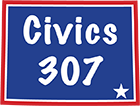The Proclamation for the Special Session, signed by the President of the Senate and Speaker of the House, summons members to address “a critical situation [that] exists relating to COVID-19 vaccine mandates…” The 66th Legislature of Wyoming will convene on Tuesday, 26 October at the State Capitol for a maximum of three days.
News articles, press releases and social media posts have characterized the purpose of the Session to address the federal vaccine mandate announced by President Biden. Whether that inaccuracy, or rather, incomplete description, is just oversimplifying or marketing is difficult to determine. The official document does not specify so the word applies in the general sense of an official or authoritative instruction or command specific to vaccines.
Draft bills were due to the Legislative Services Office in time for release with a bill number assigned by the end of day, 21 October. In keeping with the proposed Rules for the Session, an exact replica or “mirrored” bill is assigned for each chamber. There are 20 unique draft bills, only one of which is solely focused on countering a federal vaccine mandate. It is critical to note that no federal mandate currently exists. The proposal from the White House is to have OSHA define rules which must go through a rule approval procedures.
Three bills have nothing to do with COVID-19, vaccines or mandates. The remainder are primarily aimed at businesses, organizations and entities to either prevent, limit or penalize establishing vaccination requirements. The bills also venture into mask mandates and medications. Financial and criminal penalties apply in many bills. These range from severance pay for individuals fired or who voluntarily resign for refusing a vaccination to a $10 million dollar fine on public servants who enforce vaccine mandates. Where criminal charges are identified, some are misdemeanors while at least one is a felony.
A joint Rules and Procedures Committee meeting held on 21 October establish the proposed Rule changes that will apply for the session. These include introduction by majority vote in each chamber. The Majority Leaders will propose identical consent lists of bills for introduction. The consent list bills can be amended to remove or add bills. Those bills where both versions have been approved for introduction will be assigned to standing committees simultaneously. Any bills not approved on the first day will not be addressed in the Session. Only standing committee amendments will be allowed in Committee of the Whole. Substitute bills cannot occur in committee. All three readings of a bill will occur on the same day with at least 90 minutes between the readings. Time limits are imposed for debate.
The first order of business on Tuesday will be to vote on the Proposed Rules. Approval of the Rules requires a 2/3 affirmative vote in both houses. Failure to obtain that (20 in Senate, 40 in House) will result in the Session being adjourned without further action.
The Special Session Bill Tracker is modified to reflect the mirror bills. Six categories are used to reflect the unique nature of the Session. These are COVID – Fed Mandate, COVID – Business, COVID – Medical, COVID – Schools, COVID – State, NON COVID. On the original bill, a summary of the provisions of the bill is included. The Tracker can be found under Bill Tracker on this site.
